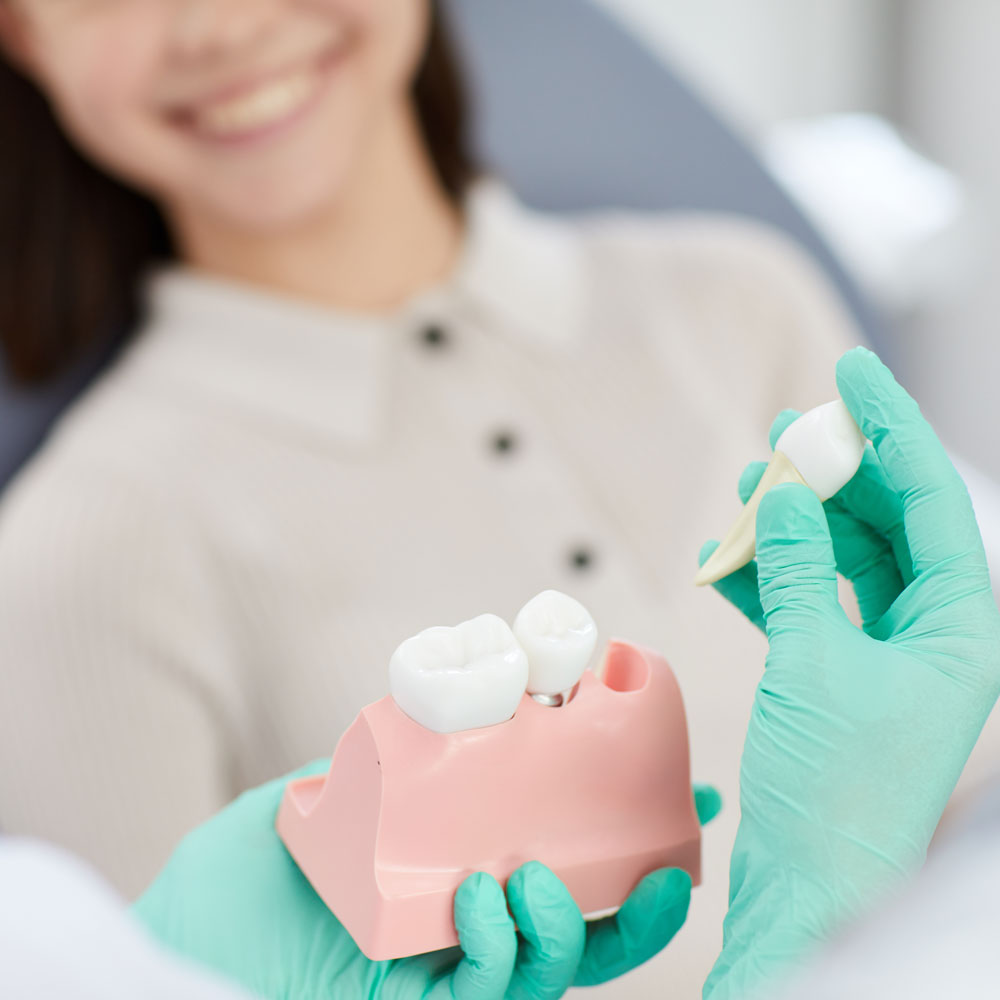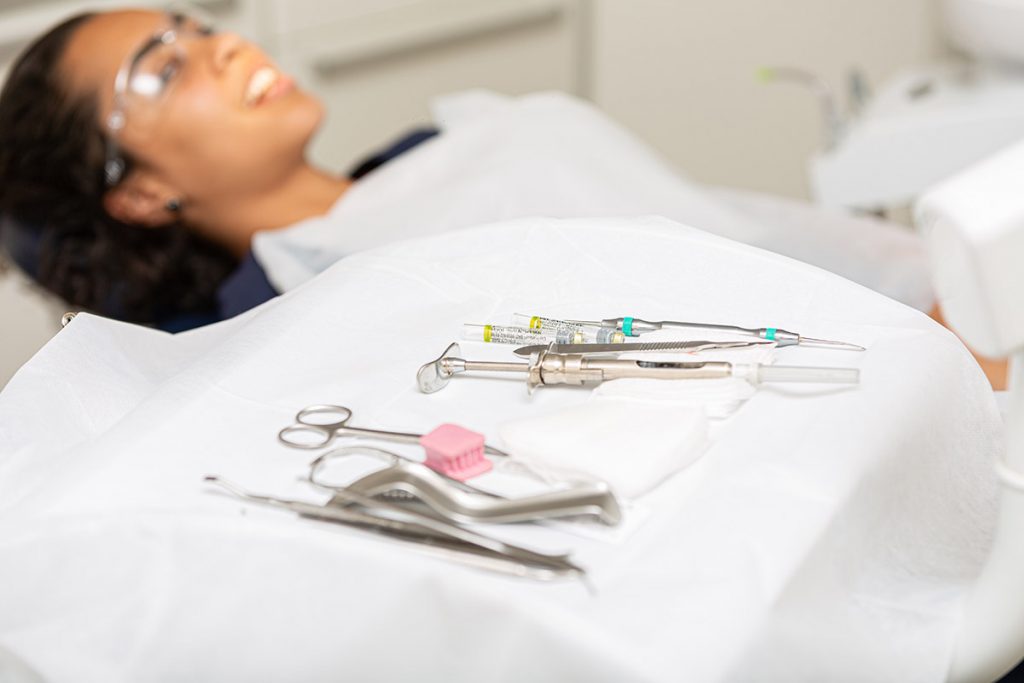
What is a dry socket?
Tooth removal is not precisely a blissful experience. It comes with post-removal pain and discomfort. However, this is normal, and patients endure it with ease. Nonetheless, experiencing intense pain after tooth removal, which keeps worsening after a few days, is not normal and can be a sign of a dry socket, also called alveolar osteitis. If you’re experiencing unexpected intense pain, give us a call by clicking the button below to book an emergency appointment.

When can a dry socket occur?
If you have undergone tooth extraction recently, you are at risk of getting a dry socket. Although it is rare (incidence rate is 2-5%), it is one of the most common and severe complications of tooth removal. The type of tooth extraction also influences the chances of getting a dry socket. Though rare, it is most likely to develop after wisdom tooth extraction.
After a tooth is removed from its socket, a blood clot is supposed to form. This blood clot is essential as it protects the extraction socket and initiates healing of the extraction wound. However, at times the blood clot may not form properly or may get dislodged due to improper post-operative care. This leaves the underlying bone and nerves exposed to the vicissitudes of the oral environment, air and anything that enters the mouths. This further leads to infection of the extraction socket and severe pain that worsens 2 to 3 days after the extraction and keep getting worse, causing a dry socket. Over the counter pain medications may not be enough to resolve this pain, and it requires urgent attention from our dentist in London. If you think you might have developed a dry socket, contact us at our clinic in London immediately.

Symptoms of dry socket
There are various signs and symptoms which may suggest that you have developed a dry socket. Here are some of them:
- Throbbing pain that begins 1-3 days after get getting your teeth removed.
- Pain that radiates to your entire jaw up to the ear, eye, neck and forehead on the side of the extraction.
- If you see a bone when viewing the jaw in a mirror, or a dry-looking socket without a blood clot, you are most probably experiencing a dry socket.
- Bad breath or foul order coming from the mouth.
- Unpleasant, salty taste in your mouth.

Who is at risk of experiencing a dry socket?
- Smokers
- People having poor oral hygiene.
- Having a traumatic wisdom tooth removal.
- Not following your dentist’s instructions.
- Spitting, rinsing and drinking through a straw can create suction in your mouth, dislodging the clot.
- Having a history of dry socket.
- Presence of gum or tooth infections.
- Consumption of oral contraceptives.

Treatment of dry socket
If you start experiencing intense pain after tooth removal, call us to schedule an urgent appointment at our clinic in London. Our dentist in London will examine the empty socket and discuss a treatment plan for you. In some cases, an X-ray might be necessary to rule out other conditions such as osteomyelitis or to check if there is a tooth remnant still at the extraction site.
Once our dentists have determined that it is indeed a dry socket, they will debride the extraction site of any debris and clean it with antiseptics to remove any infection. Cleaning the socket will help with the formation of a new blood clot. After this, they will pack the socket with a gauze soaked in some medications to alleviate any pain. You will be instructed on when and how to remove the dressing, and they may suggest you come for some additional visits if the dry socket is more severe or guide you on how to place a new dressing at home till the socket heals.
They will also prescribe some anti-inflammatory medicines to help eliminate the pain with some antibiotic if necessary. Ensure that you take them as instructed to prevent any further complication.

Complications of untreated dry socket
A dry socket is a painful situation that will hamper your daily activities, and the pain will make it impossible for you to focus on anything else. You will experience delayed healing. The dry socket is almost always at a risk of serious infections. This infection can spread to the bone and lead to osteomyelitis.

How to prevent dry socket
- Avoid smoking and any tobacco after tooth removal at all costs.
- Follow proper post-extraction care.
- Avoid rinsing your mouth.
- Avoid spitting and sucking through a straw.
- Maintain good oral hygiene.
- Schedule regular follow-ups.
- Discuss any medications you take with your dentist.
If you have recently undergone tooth removal and experience intense jaw pain, you may have developed a dry socket. Please do not ignore this pain and call us at our clinic in London right away to schedule an urgent appointment. Our team of exceptional dental professionals will ensure it is treated and you are comfortable.
